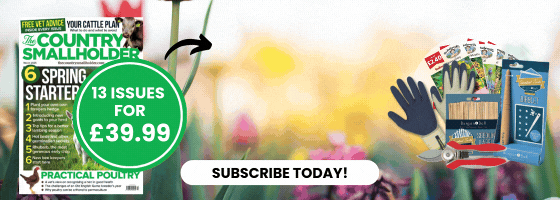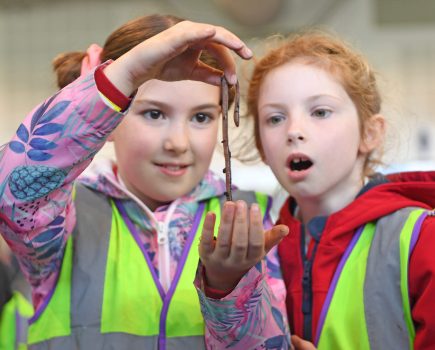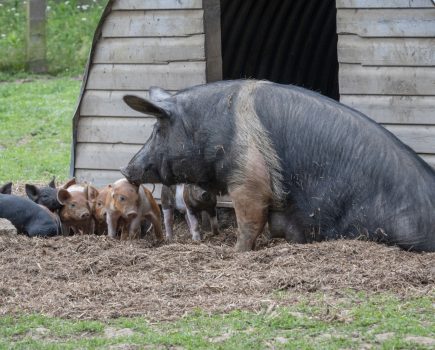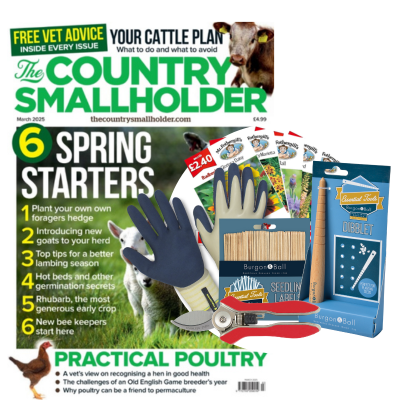APRIL 14, 2014: Charles Dowding has become a leading name in gardening circles. A proponent of organic growing and the ‘no-dig’ method, he has now published five books. Charles starts writing for Country Smallholding about organic growing from our May issue. We are also giving away six of his books in a competition! Here is an introduction from Charles
Since 1983 I have been practising a no-dig approach to grow organic vegetables for sale, with excellent results in four different gardens, on soils ranging from stony brash to dense, white clay. As well as reliable harvests of healthy leaves, fruits and roots, I have few weeds. Growing organically In the 1980s the main interest in my growing centred on its being organic, because in those days it was new and unusual, at a time when synthetic chemicals were more widely used, and their drawbacks had not been realised. Now there is more recognition for growing organically, as a viable alternative to using artificial fertiliser and sprays. I feel the next step is for organic gardening to be called just gardening, in contrast to chemical gardening! Currently the language is the wrong way around, with chemical gardening and farming called conventional, which is bizarre, when the dictionary says conventional means normal and natural. Also it is the wrong way around in that organic farmers and growers need to pay at least £500 to be certified organic, when it should be users of chemicals who ought to pay a fee since many sprays and fertilisers leave residues which cost money to clean up, for instance nitrates in water and atrazine weedkillers in groundwater, not to mention neonicotinoids affecting bees. No dig Now, as well as the organic aspect, I am finding a lot of interest in my no dig methods and am sharing information on both of them in my articles here. My undug soil is full of undisturbed life, which encourages healthier growth with less pest, disease and weed. Soil organisms are a vital and often overlooked part of healthy growth. Discussions about soil fertility tend to be weighted in favour of marketable products such as chemical nutrients, rather than biological activity which is simple to encourage, and often cheap or even free. For example, I add occasional barrowloads of my neighbour’s fresh horse manure to bulk up and improve my own compost, while many smallholdings have ample sources of fertility. Animal manures stacked for a year become wonderful compost for growing abundant vegetables and gorgeous flowers. Leave alone The main thing in no dig is to disturb soil as little as possible. A no dig approach is exactly that, with no prior digging needed, even for heavy soils, and no ‘forking through’ at any stage. The soil in my current garden is loam over clay and grows wonderful vegetables, fruit and flowers, without any loosening. Don’t be put off by the oft-repeated, and untrue assertion that soil needs double digging before you start no dig. For example, I once took on a third-acre plot of compacted clay and restored it to healthy production through surface mulching only, encouraging worms to reintroduce the missing air and structure. Photo: Charles Dowding in his garden in Somerset







